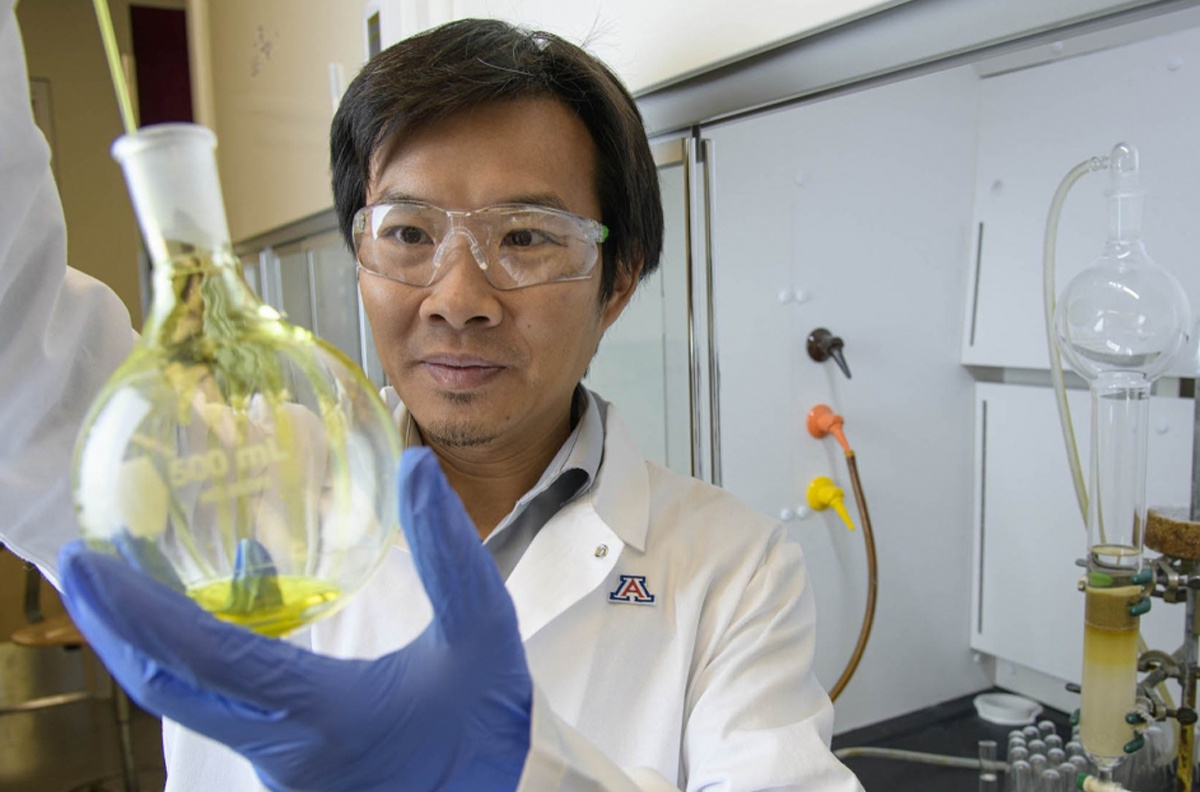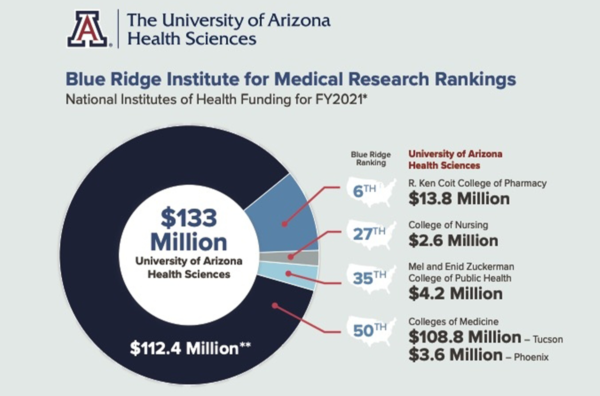
UArizona Health Sciences Colleges Climb in Blue Ridge Rankings of NIH Funding
The University of Arizona Health Sciences received more than $133 million in National Institutes of Health funding in 2020-2021, with several colleges showing improvements in the Blue Ridge Institute for Medical Research national rankings, released in mid-February.
The Blue Ridge Institute for Medical Research is a nonprofit organization that ranks U.S. medical schools by NIH grant awards each year. The NIH is the largest public funder of biomedical research in the world. NIH-funded research has led to breakthroughs and new treatments helping people live longer, healthier lives, and building the research foundation that drives discovery.

From Oct. 1, 2020, to Sept. 30, 2021, the UArizona R. Ken Coit College of Pharmacy advanced its ranking to No. 6 with $13.8 million in NIH funding. Last year, the college checked in at No. 8 with $10 million in funding.
Some of the College of Pharmacy’s largest NIH grants were received by:
- Jun Wang, an assistant professor and BIO5 Institute member whose research includes an investigation into SARS-CoV-2 anitviral therapies
- Jeannie Lee, assistant dean for student services and associate professor whose NIH-funded projects are focused on improving hypertension medication adherence in older adults
- Hongmin Li, who holds the R. Ken and Donna Coit Endowed Chair in Drug Discovery and is working to identify new therapeutic targets for several diseases including those caused by flaviviruses, including West Nile, Zika and yellow fever
The UArizona College of Nursing crossed the $2 million mark and jumped five spots in the rankings, from No. 33 to No. 27. Investigators in the College of Nursing garnered $2.6 million in NIH funding.
“We have a small but mighty faculty,” said Judith S. Gordon, associate dean for research in the College of Nursing. “Faculty in the College of Nursing are very productive in securing NIH funding, as well as other types of extramural funding.”
Gordon highlighted two large-scale trials being led by Terry Badger and Aleeca Bell, along with a developmental study led by Tracy Crane, as newly funded research that contributed to the college’s success. Badger, the Eleanor Bauwens Endowed Chair and a professor of nursing, is researching post-chemotherapy symptom management and caregiver and cancer survivor psychological distress, symptom management and health care use. Bell, an associate professor of nursing, is examining behavioral interventions to improve mother-infant synchrony among women who experienced childhood adversity. Crane is using natural language processing to determine predictors of healthy diet and physical activity behavior change in ovarian cancer survivors.
The UArizona Mel and Enid Zuckerman College of Public Health, while increasing its NIH funding from $3.8 million to $4.2 million, held steady at No. 35 in the rankings. The UArizona College of Medicine – Tucson and College of Medicine – Phoenix, which the Blue Ridge Institute for Medical Research combines in the rankings, accounted for $112.4 million in funding and ranked No. 50 overall.
The Blue Ridge rankings are determined by the whole value of NIH awards to a principal investigator’s institution and do not include research and development contracts or funding from sources other than the NIH.
Pictured above: Jun Wang, an assistant professor in the R. Ken Coit College of Pharmacy, received several large NIH grants to fund research into identifying antiviral drug targets for viruses such as SARS-CoV-2, which causes COVID-19, and enterovirus D68, which causes moderate to severe respiratory illness in children.





